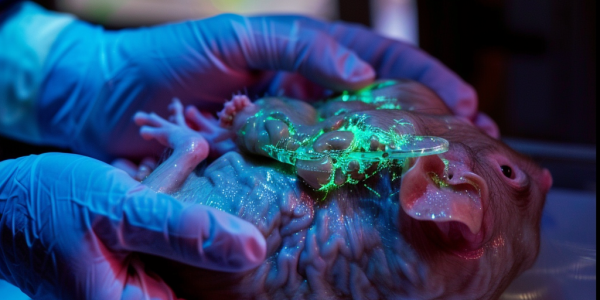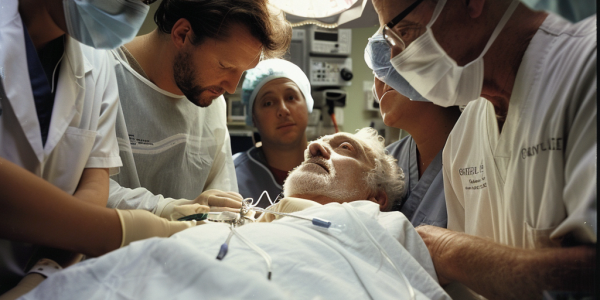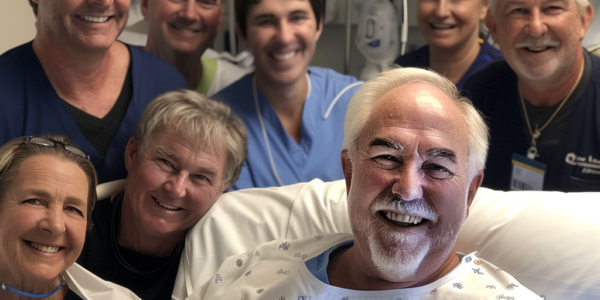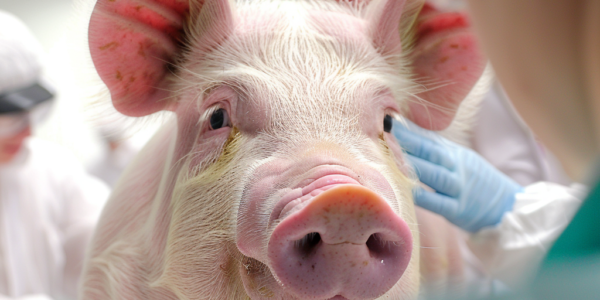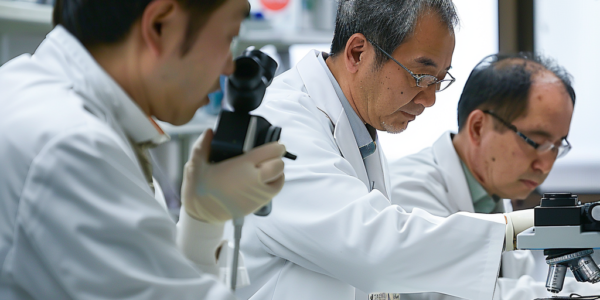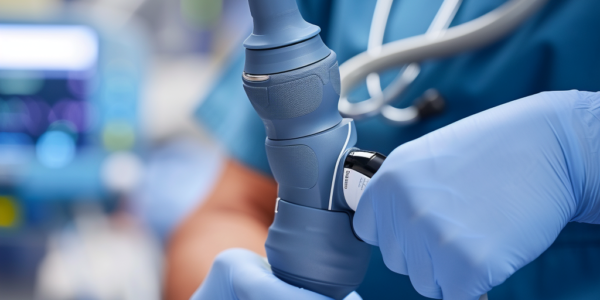Groundbreaking In-Utero Kidney Tissue Transplantation Milestone Achieved in Japan
Scientists in Japan have achieved a groundbreaking milestone in the field of medicine by successfully transplanting kidney tissue between rat fetuses while still in the uterus. This remarkable feat, although yet to undergo peer review, marks a significant advancement that could pave the way for future in-utero xenotransplantation in humans. The study aims to address the neonatal condition known as Potter sequence, offering a potential solution to kidney-related complications in infants. Lead author Takashi Yokoo described the project as groundbreaking, with a success rate of 88% in transplanted kidneys. The research holds promise for future in-utero medical interventions in both animals and humans.
Groundbreaking Pig Kidney Transplant Marks Milestone in Medicine
Read about the groundbreaking medical procedure at Massachusetts General Hospital where a genetically modified pig kidney was successfully transplanted into a 62-year-old man suffering from end-stage kidney disease. This innovative operation marks a significant advancement in the field of medicine, with potential implications for the future of organ transplantation.
Mother of Three Battling Liver and Colon Cancer Seeks Living Donor
Jamie Ball’s journey with liver and colon cancer began with unbearable pain, leading to a shocking stage 4 diagnosis. Despite facing significant challenges and undergoing chemotherapy, she sought a living donor for a potential liver transplant, turning to social media for support.
Man Discharged After Receiving Genetically Modified Pig Kidney Transplant
The first man to receive a genetically modified pig kidney transplant has been discharged from Massachusetts General Hospital after a successful surgery. The historic procedure is being celebrated as a significant milestone in the field of transplantation, offering hope to thousands of people in need of transplants. The pig kidney, modified by eGenesis, was approved for use under a compassionate use protocol, potentially addressing the world’s organ shortage.
Man recovering well after receiving genetically modified pig kidney
62-year-old Rick Slayman received a genetically modified pig kidney in a pioneering transplant surgery, marking a major milestone in organ availability. With a chronic shortage of human donor organs, animal donors may provide hope for thousands in need of transplants. The special pig kidney was provided by eGenesis of Cambridge, Massachusetts, and Mr. Slayman’s recovery is being closely monitored as he continues to take anti-rejection drugs.
HI-Bio™ Receives Orphan Drug Designation for Felzartamab Targeted Therapy
HI-Bio™ has received Orphan Drug Designation from the FDA for felzartamab, a targeted therapy for antibody-mediated rejection in kidney transplant recipients. This designation is a significant milestone in addressing the critical unmet medical need for AMR, with potential breakthrough implications. The Orphan Drug Designation qualifies HI-Bio for certain development incentives, expected to accelerate the development of felzartamab and enhance the company’s ability to bring this innovative therapy to patients in need.
Genetically Modified Pigs Offer Hope for Organ Transplantation
Scientists are making groundbreaking strides in the field of organ transplantation, offering hope for the thousands of patients awaiting life-saving procedures. The latest development involves genetically modified pigs, which could potentially put an end to the shortage of organs for transplants. Researchers are optimistic about the potential of gene-edited animals to serve as a new source of organs for transplantation, marking a significant advancement in the field of medical science.
New Approach to Regenerative Therapy for Heart Failure
Groundbreaking research from Hokkaido University reveals a new approach to regenerative therapy for heart failure. Activating the mitochondria of regenerative cells prior to treatment significantly enhances the effectiveness of cell transplantation therapy for heart healing. The study, led by Professor Yuma Yamada, demonstrates the potential of this innovative approach to improve cardiac function and suppress myocardial fibrosis.
Woman Makes Remarkable Recovery After Third Double Lung Transplant
Read about Taylor Stephenson’s incredible journey of perseverance and resilience as she undergoes her third double lung transplant, defying the odds and embracing a renewed sense of hope and vitality. Her story offers hope and inspiration to others facing similar challenges.
Abbott Northwestern Hospital Completes First Barostim Baroreflex Activation Therapy Implant in Minnesota
Allina Health’s Abbott Northwestern Hospital achieves a major milestone with the first Barostim Baroreflex Activation Therapy implant in Minnesota. The groundbreaking procedure offers hope to heart failure patients by potentially reducing symptoms and improving quality of life. This achievement also marks a significant milestone for CVRx, as it is the company’s first Barostim implant in the United States.

